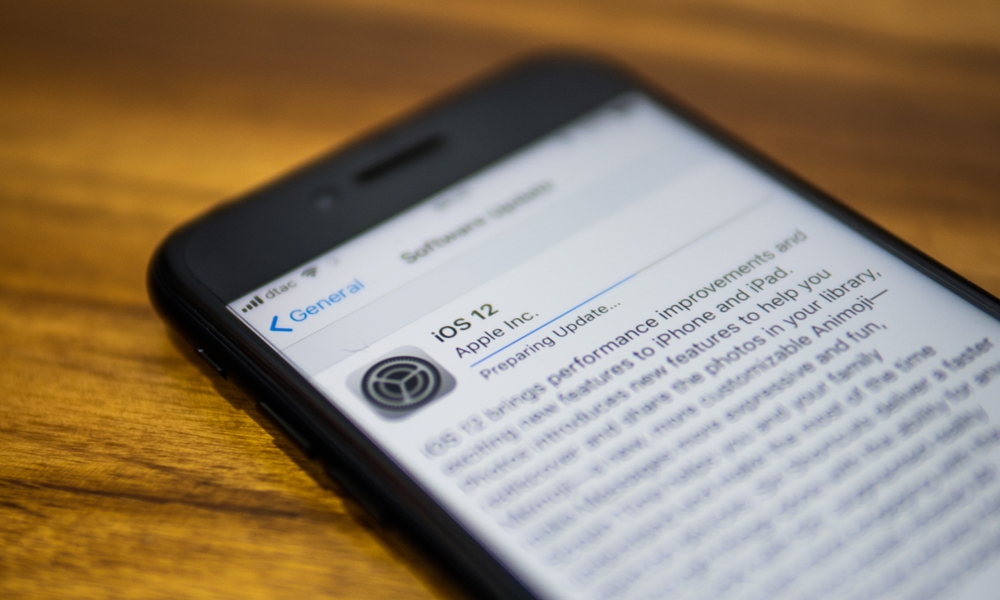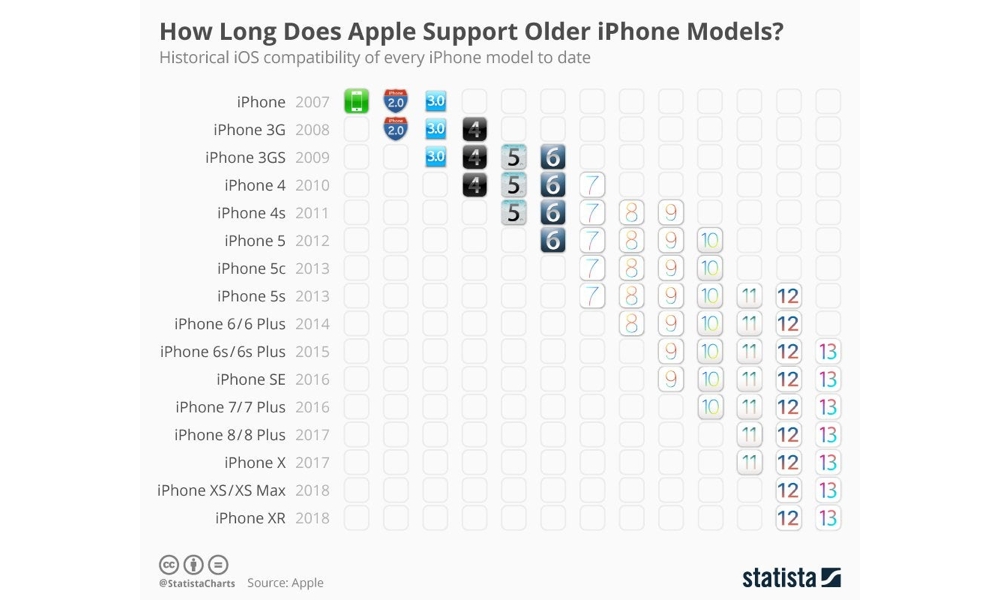This Chart Shows One of Apple’s Biggest Advantages Over Android
 Credit: Wachiwit / Shutterstock
Credit: Wachiwit / Shutterstock
Toggle Dark Mode
Although with each new major iOS release there are always a few complaints about support being dropped for older devices, many iPhone users do appreciate how long Apple continues to provide updates for older iPhone models, with some devices being able to run the latest version of iOS for almost six years after they were first released — a benefit that’s not enjoyed by the other guys.
Now, a user on Reddit has put together a pretty cool chart that illustrates just exactly how long Apple has supported older iPhone models for all of its iOS versions and iPhones, going right back to the original 2007 iPhone with “iOS” (it was called “iPhone” software or firmware back then) version 1.0.
As the chart shows, although Apple’s support for older devices was more limited in the early years — the original 2007 iPhone was dropped off the list by the time iOS 4 was released in 2010 — more recent iOS releases have breathed new life into much older devices, with almost every iPhone made since 2013 spanning at least five iOS versions. Of course, naturally more recent models haven’t been around long enough to receive more than a few updates, but it’s safe to assume that this trend is going to continue, with the iPhone 7, for example, likely getting at least an update to iOS 14 next year, and the iPhone 8 lasting through iOS 15.
The overall record is held by the venerable iPhone 5s, which has been able to run every iOS version since it was first released in 2013, from iOS 7 to iOS 12, spanning almost six years; this fall will be the first time that Apple’s first 64-bit and first Touch ID equipped iPhone will be excluded from a major iOS update when iOS 13 arrives.
However, it’s still pretty impressive to see that Apple’s iPhone 6s and iPhone 6s Plus, which were released almost four years ago, will still be able to run iOS 13, and will get the iOS 13 update at the same time as every other iPhone.
In fact, there have also been two iOS releases where Apple didn’t drop support for any older devices at all; both iOS 9 and iOS 12, which were focused largely on performance improvements for older devices, continued to support all of the same devices that the prior versions did. Although iOS 6 also didn’t drop support for any older iPhones, older iPad and iPod touch models were left out, which isn’t reflected in this chart as it focuses solely on the iPhone.
Life on the Other Side
As users point out in the Reddit thread, this is in stark contrast to how long most Android devices are able to receive updates, with one user pointing how his HTC Legend didn’t even receive updates a year later — after six months the updates “just stopped” — and others saying that their phones, like the One M8 and Samsung Galaxy S5, which were considered flagship devices at the time, only got the next single major update.
My HTC Legend back in the day got updates for 6 months. Then it just stopped. They just couldn’t be bothered with it anymore. Honestly, in terms of real value, iPhones are quite incredible.
Reddit user Endemoniada
To make matters even more frustrating, most Android OS updates are sent out by the carriers, so users end up with vastly different experiences depending on when their carrier decides to deploy a given update, or whether they do at all. Even when Android devices get updates, they can often be delayed by several months between carriers, creating even more fragmentation.
My One M8 only got one major update after I bought it. It was incredibly frustrating to buy a flagship device with such a poor level of support.
Reddit user blendertricks
On the other hand, with the iPhone all iOS updates come directly from Apple’s servers, and carriers have no direct involvement beyond supplying configuration profiles for their particular networks. This means that no matter where in the world you’re using an iPhone, or what carrier it’s on, if you’ve got a 2015 iPhone or later, you’ll not only be guaranteed to get iOS 13 when it arrives later this year, but you’ll also get it at the exact same time as every other iPhone user, regardless of whether you’re on an iPhone 6s or the latest and greatest iPhone XS Max.







